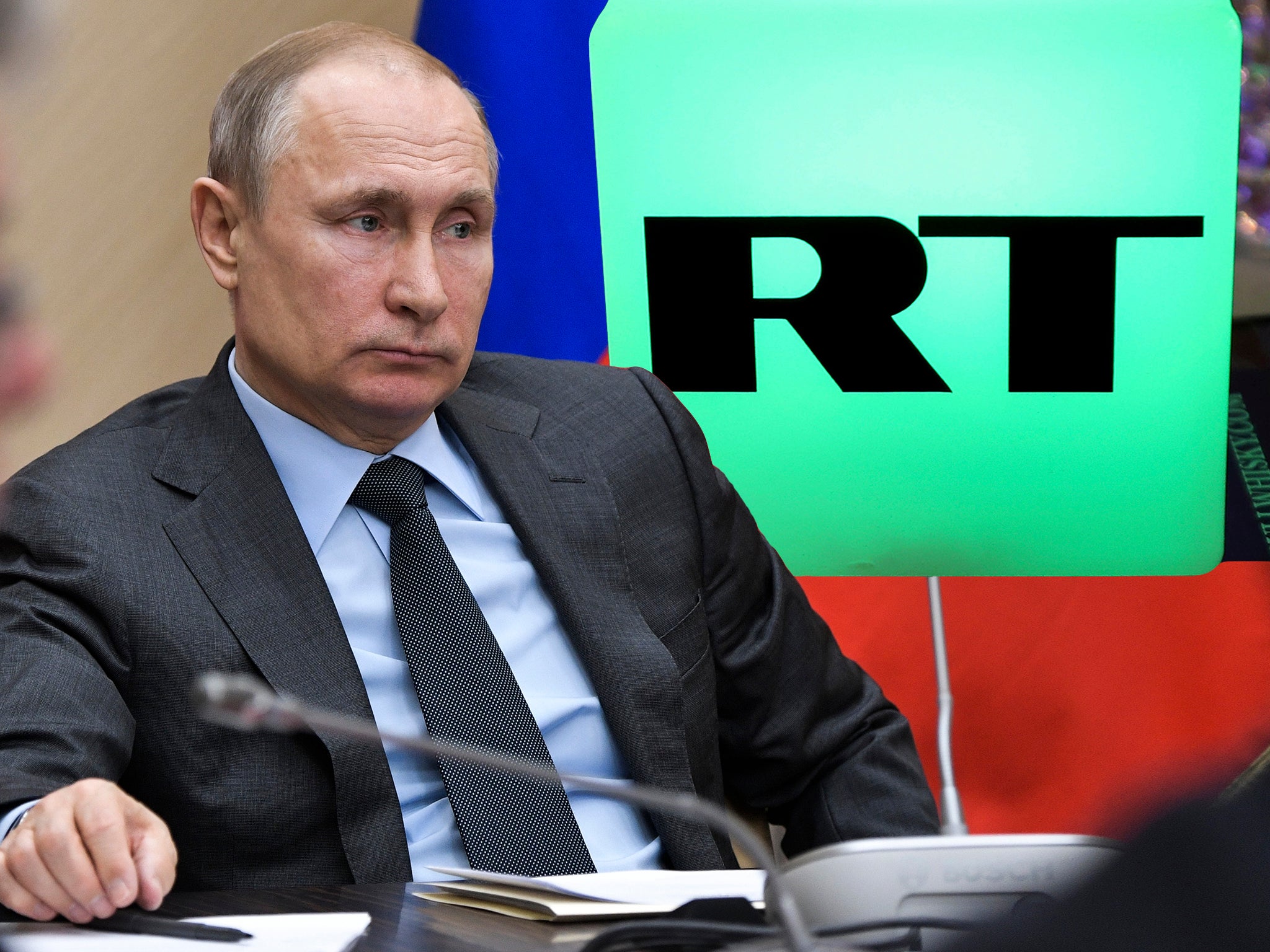Russia steps up information war with UK — but Ofcom's fight against RT misses the point
Moscow signals major shift in propaganda activities against the West, but Ofcom's battle against RT is in danger of missing the point.

The week in Moscow has unfolded as a tale of two government watchdogs.
On Monday, the communications regulator Roskomnadzor moved to block messaging app Telegram, after its owner, Pavel Durov, refused to hand encryption keys to intelligence services. The agency then took a proverbial sledgehammer to crack a nut, blocking millions of unrelated IP addresses. Despite their efforts, over 70 per cent of users could still access the service 48 hours later.
In Britain, after months of speculation, another communications regulator, Ofcom, signalled its intent to call time on RT, the channel formerly known as Russia Today. The Kremlin-funded network had been in trouble for breaking impartiality rules before. But this time, things seemed to be serious, with the watchdog opening seven new investigations at once. Coverage of the Salisbury attack was a tipping point, the agency said in a statement.
For many British MPs, RT is synonymous with the Kremlin’s undeclared information war on the West. In March, the former minister Chris Bryant called on Theresa May to close the station down “for broadcasting its propaganda in this country”. Fellow MP Stephen Doughty made a similar request.
Russia has warned of a mirror response against British journalists working in Russia. “Storm clouds have formed over the BBC,” the country’s foreign spokesperson Maria Zakharova said earlier this week.
Placing the wisdom of a ban on RT to one side, the British parliamentarians’ calls did underline two things: major insecurities over the effectiveness of the Russian information strategy and the lack of tools to deal with it.
There has been a clear shift in Russia’s information policy in the last decade. At home, hostile publications have been taken over, difficult editors replaced and talking points reintroduced to the major channels.
Abroad, manipulation and disinformation campaigns have been stepped up. The 2008 Georgian war seems to have acted as a major turning point back to Soviet-style propaganda and control.
But there is something that sets the new approach apart from the past. Whereas Soviet propaganda was mostly centralised and ideological, the new output is nimbler, franchised, opportunistic; it feeds on Western weaknesses. The soldiers of modern Russian information warfare are its official spokespeople, Twitter accounts, trolls and hackers, all fighting different and independent wars.
If there is an ideology that these actors share, it is the sense of there being no one truth, said sociologist Alexei Levinson.
“As elsewhere in Russian society, cynicism is what holds things together,” he told The Independent. “Only the pragmatic and the present has any value. Someone decides we’ll believe in this, and we won’t believe in that. Nothing is attached, everything is flexible. The only absolute is loyalty to Putin and the system.”
With this, multiple realities are oddly coherent. One week, a channel can claim the Douma chemical attack was staged. And the next week, the same channel can report on a chemical weapons factory in rebel territory, allegedly funded by the UK.
“Russia believes it’s in an information war and it has to win every battle,” the cultural critic Mark Lipovetsky told The Independent. “It doesn’t care what it said a minute ago, and what happens tomorrow doesn’t matter too. The intensity and volume of the bullshit are what makes it work.
“At night time, all the cats are grey,” he said.
RT’s critics have argued that it is here – in its “questioning more”, projecting moral equivalence mode — that the channel has its most damaging effect.
Undeniably, the channel does engage with fringe groups, promote weird conspiracy theories and strike at areas of institutional Western weakness. Sometimes it is truthful, other times not.
But RT’s viewer stats do not yet suggest any major impact. According to the latest figures, RT reached just over half a million viewers in the UK over the week. This is a relatively small percentage of the audiences of major news networks and publications.
It is there, in the mainstream media, said Lipovetsky, that the Kremlin actually gets its major propaganda hit.
“The Kremlin have become the masters of our short attention spans,” he said. “Most publications are lazy and reproduce Russian statements without context – the same statements you’ll find on propaganda channels. Independent media should be deconstructing, pointing out lies and inconsistencies. But they aren’t paying attention.”
By tilting at windmills with the probability of major collateral damage, Ofcom’s RT investigation may have more than just a week in common with Roskomnadzor’s Telegram disaster.
Join our commenting forum
Join thought-provoking conversations, follow other Independent readers and see their replies
Comments
Bookmark popover
Removed from bookmarks